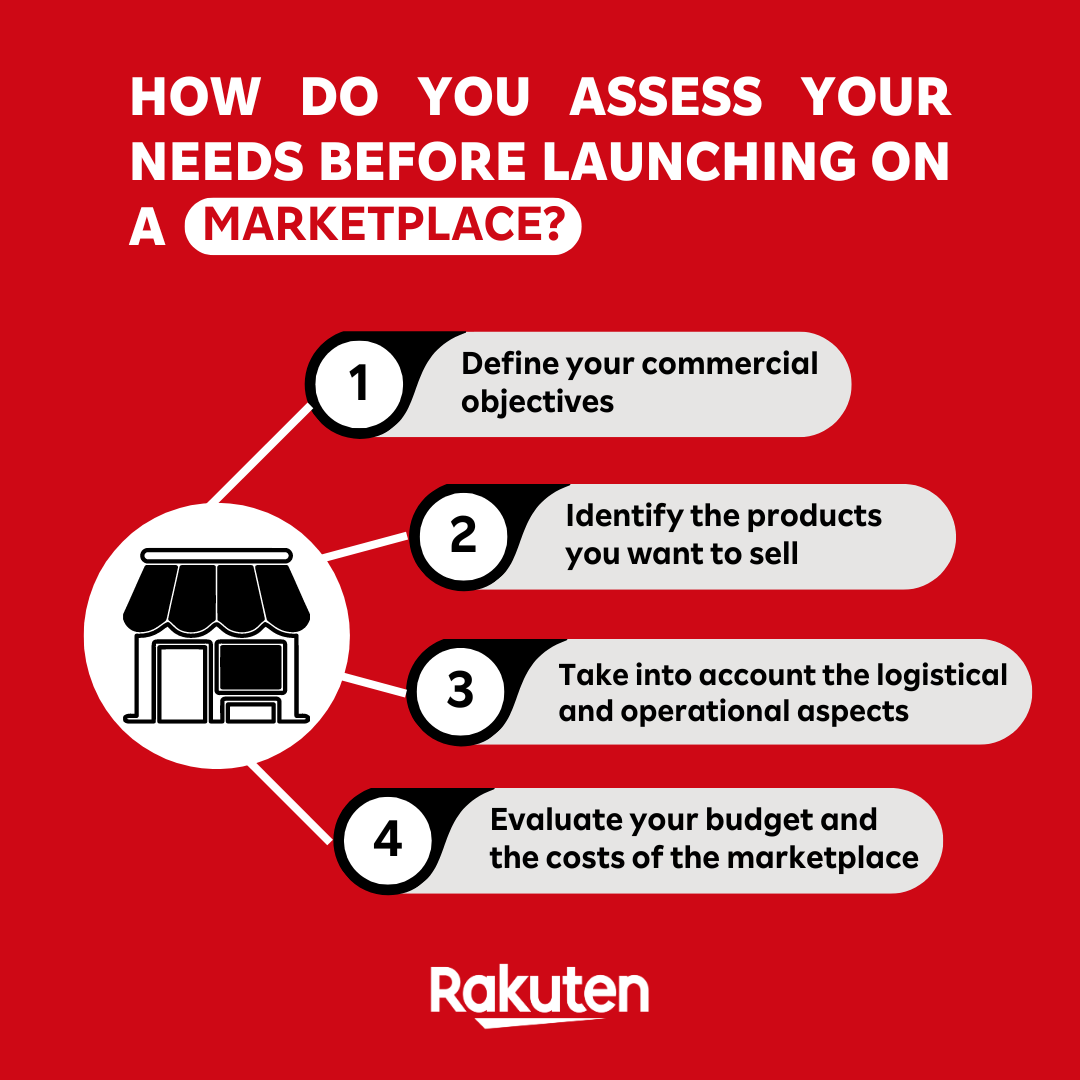How to select the best marketplace for your e-commerce business?
A marketplace can be a powerful lever for increasing your online sales, expanding your audience, improving your visibility and strengthening your market presence. However, it is essential to understand that each market is unique. It may have different advantages and disadvantages, depending on your company's needs and strategic objectives.
After outlining our 7 tips for selling better on marketplaces, you'll discover how to choose the most suitable marketplace for your e-commerce business.
Assess your needs
Before setting up a marketplace, it's important to determine your needs carefully.
Here are the most important steps to consider before choosing a marketplace.
Define your business objectives
It's important to think about what you want to achieve with the marketplace. Whether it's to increase your sales, raise your visibility, extend your geographic reach, or diversify your sales channels.
By measuring and analysing these objectives, you can determine the key criteria for your business. These criteria include the features you need, the products you want to sell, the costs you are prepared to pay and the logistical constraints.
Identify the products you want to sell
This will help you assess whether a marketplace is right for your business. You need to make sure that the platform you choose is suited to the nature of your products. Some marketplaces specialise in specific categories, such as electronics or crafts, while others are more generalist.
Evaluate your budget and marketplace costs
The costs associated with selling on a marketplace can vary depending on the platform. They generally include a monthly fee, a transaction fee for each sale made, and sometimes catalog management or advertising fees.
By taking these costs into account, you can determine whether the marketplace is profitable for your business, generating enough revenue to cover the associated costs.
In addition, you need to take into account the indirect costs associated with selling on a marketplace, such as production costs, logistics costs, shipping costs..
Consider logistical and operational aspects
The marketplace you choose can have a significant impact on your business processes, such as order processing, inventory management, delivery and customer service.
It is therefore important to analyze the marketplace 's logistics and operations policies, as well as their ability to meet your needs. For example, some marketplaces may offer storage and delivery services to make order management easier for sellers. Others may have strict policies on order processing times and returns, which can be difficult for some businesses to comply with.

Choosing a marketplace: criteria to consider
To make sure you select the platform best suited to your needs, we present 5 key criteria to consider:
1/ Choose a marketplace that is close to its sellers
The platform's proximity and commitment to its sellers is a very important point. You'll benefit from better support, more effective communication and sales strategies tailored to your business.
For example, Rakuten has a team of e-commerce consultants, specialised by activity. These consultants are dedicated to supporting sellers in their sales experience and optimising their performance on the marketplace.
2/ Choose a marketplace that is 100% marketplace
A marketplace that doesn't sell its own products and therefore doesn't compete with its sellers is a real criterion to consider.
By opting for a marketplace that is 100% marketplace, you ensure that sellers are promoted fairly and that competition is fair.
With no products of its own, Rakuten France's sole objective is to help sellers grow. They are at the heart of the platform.
3/ Choose a marketplace that offers an e-commerce logistics solution
By using a logistics service provider, you save 25% of your time, allowing you to devote more time to your core business.
What's more, you can offer your customers a faster, more efficient delivery experience.
Orders will be processed and shipped directly from the marketplace's warehouses, which can help improve customer satisfaction.
For example, on Rakuten, good customer satisfaction gives you a good Merchant Quality Score (MQS) and makes you more visible on the marketplace.
4/ Marketplace tools and functionalities
Sellers need to consider the features available on the platform, such as inventory management, order processing, and invoicing tools. They should also evaluate the marketing features to promote sellers' products. Considering these features can determine whether they match your business needs, and whether they are sufficient to meet your business objectives. It's also important to consider the ease of use and ergonomics of these tools to optimize your time and resources.
5/ Promotional actions organized by the marketplace
Some marketplaces offer exclusive promotional offers to attract customers to your store. These offers can take a variety of forms, such as shipping discounts, coupon codes, product highlights, and so on. These actions can help increase traffic and sales to your online store, as well as building loyalty among existing customers.
For example, on Rakuten, every first Wednesday of every month, there are "Mega Peaks" where every buyer can benefit from up to 20% cashback, financed by Rakuten.
Rakuten also has a cashback service, Club R, which helps build buyer loyalty.
Join the marketplace that supports the digitalization of retailers
At Rakuten, you can develop your ecommerce without a website and without any risk. We offer a free starter pack, so you're only charged on your sales.